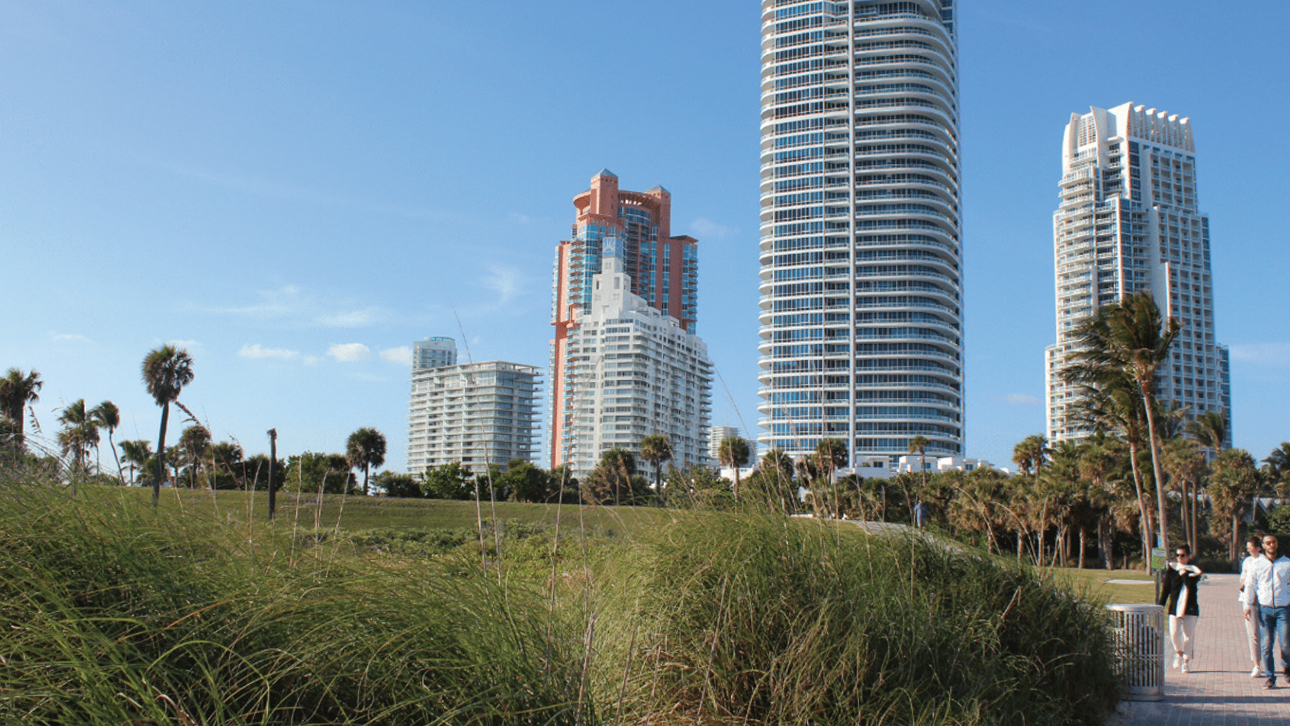Miami Beach, Florida

With the support of the Rockefeller Foundation’s 100 Resilient Cities initiative, a team of ULI Advisory Services Panelists traveled to the city of Miami Beach to provide expert advice on its preparations for sea level rise and provide an assessment of the current $600 million stormwater management program.
Since 2013, the City has taken sweeping efforts to protect its investments from the effects of climate change. Miami Beach is approximately 15% into a 10-year, multi-year stormwater management program that addresses both infrastructure and land use and development codes. This stormwater management plan includes improving drainage systems, elevating roads, installing pumps to replace aging stormwater pipes, replacing much of the city’s water, wastewater, and utilities systems, and updating regulations to reflect increased elevation requirements, seawall barriers, and more.
The panel was tasked with determining whether these efforts are appropriate and identifying opportunities for improvement.
Miami Beach faces several obstacles to enhancing the resilience of the city against sea level rise and coastal erosion, including complex geology and stormwater and high-tide events that both degrade the structural integrity of the City’s infrastructure and frequently causes extreme flooding. The City’s historic districts also provide pressure to the issue given the preservation designations and the cost of elevating historic structures. The majority of its historic districts, which account for 44% of City revenue streams and drive tourism, are located within low elevation zones and are costly to adapt to sea level rise and flooding risks. Further, there is not consensus about the city’s approach among local stakeholders and residents and local media have been extremely vocal about the City’s efforts.
Report Summary: With the support of the Rockefeller Foundation’s 100 Resilient Cities initiative, a team of ULI Advisory Services Panelists traveled to the city of Miami Beach to provide expert advice on its preparations for sea level rise and provide an assessment of the current $600 million stormwater management program.
Since 2013, the City has taken sweeping efforts to protect its investments from the effects of climate change. Miami Beach is approximately 15% into a 10-year, multi-year stormwater management program that addresses both infrastructure and land use and development codes. This stormwater management plan includes improving drainage systems, elevating roads, installing pumps to replace aging stormwater pipes, replacing much of the city’s water, wastewater, and utilities systems, and updating regulations to reflect increased elevation requirements, seawall barriers, and more.
The panel was tasked with determining whether these efforts are appropriate and identifying opportunities for improvement.
Miami Beach faces several obstacles to enhancing the resilience of the city against sea level rise and coastal erosion, including complex geology and stormwater and high-tide events that both degrade the structural integrity of the City’s infrastructure and frequently causes extreme flooding. The City’s historic districts also provide pressure to the issue given the preservation designations and the cost of elevating historic structures. The majority of its historic districts, which account for 44% of City revenue streams and drive tourism, are located within low elevation zones and are costly to adapt to sea level rise and flooding risks. Further, there is not consensus about the city’s approach among local stakeholders and residents and local media have been extremely vocal about the City’s efforts.


